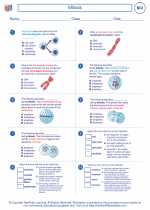Physical Properties of Propane
Propane is a nonpolar molecule with a boiling point of -42.1 °C and a melting point of -187.7 °C. It is lighter than air and has a density of 1.88 kg/m³ at 25 °C.
Chemical Properties of Propane
Propane undergoes combustion reactions to produce carbon dioxide and water:
C3H8 + 5O2 → 3CO2 + 4H2O
It can also undergo substitution reactions with halogens, such as chlorination or bromination.
Industrial and Household Uses
Propane is widely used as a fuel for heating and cooking in residential, commercial, and industrial settings. It is also used as a propellant in aerosol cans and as a refrigerant. Additionally, it is used as a feedstock in the production of petrochemicals.
Environmental Impact
While propane is a relatively clean-burning fuel, its combustion does produce carbon dioxide, a greenhouse gas. However, it produces lower levels of carbon monoxide, particulate matter, and nitrogen oxides compared to other fossil fuels.
Study Guide for Propane
- What is the molecular formula of propane?
- State the physical properties of propane.
- Provide the chemical equation for the combustion of propane.
- List at least three industrial or household uses of propane.
- Discuss the environmental impact of propane use.
[Propane] Related Worksheets and Study Guides:
.◂Biology Worksheets and Study Guides High School. Mitosis

 Worksheet/Answer key
Worksheet/Answer key
 Vocabulary/Answer key
Vocabulary/Answer key
 Vocabulary/Answer key
Vocabulary/Answer key
 Vocabulary/Answer key
Vocabulary/Answer key
